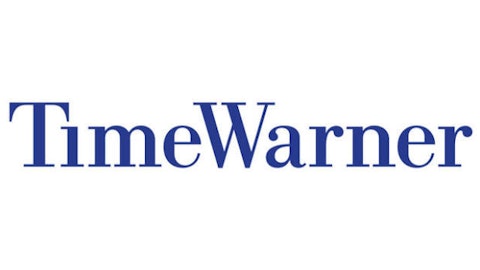
Which raises the question: When should the owner of a company’s stock be willing to sell?
When the thesis no longer holds together
There are any number of legitimate reasons to sell a company’s stock. For the real-money Inflation-Protected Income Growth portfolio, the key factors that would make a company a sale candidate will be related to the same factors that made the company attractive to buy in the first place:
- If the dividend looks to be at risk. To be sustainable, a company’s dividend must be supported by cold, hard cash flow. If the company stops generating enough cash to both cover its dividend and reinvest in maintaining and growing the business, it becomes a candidate for selling.
- If the dividend fails to grow for too long. The primary objective of this portfolio is to generate increasing amounts of income to combat the ravages of inflation. If a selection ceases regularly increasing its dividend, it’s no longer performing a key function that made it an attractive pick.
- If the company ceases being reasonably priced. Stock prices fluctuate on a day-to-day basis. If a stock rises far enough, it will exceed its fair value by enough so that the expected future rate of return from holding no longer appears to be worth the risks. On the flip side, a company can deteriorate and no longer appear to be worth what it once looked like it was worth. Either way, if the market price is higher than its estimated fair value, a company may be sold.
- If the company radically changes what it does. Every company selected for the iPIG portfolio was chosen with an eye toward diversification. If the company changes industries, it may no longer be a good fit from a diversification perspective.
Why it matters
Risky dividends: Annaly Capital Management, Inc. (NYSE:NLY) is a strong player in the risky business of leveraged mortgage investing. As a REIT, its dividend is mandated to be at least 90% of its earnings, leaving little left to reinvest in the business. As a result, in good times its dividend is high, and in bad times its dividend drops. Over long periods of time, the company, if successfully managed, can create wealth for its owners. For investors looking for reliable income, though, Annaly Capital Management, Inc. (NYSE:NLY) can’t be counted on for consistency.
Stagnant dividends: Before General Electric Company (NYSE:GE) cut its dividend, it kept that payment steady for six consecutive quarters, breaking its long-term trend of raising it every four. That change in dividend policy was one of the clearest public signals from the company of how much risk it really faced from the financial meltdown. Because dividends need to be paid with cash, they can be strong signaling devices, and unexpected stagnation can clue investors in to issues management is otherwise unwilling to share.
Valuation concerns: Hasbro, Inc. (NASDAQ:HAS) has been the top-performing early pick of the iPIG portfolio, rising from $35.20 at the time of purchase in late December to $40.11 as of last Friday’s close. That’s a nearly 14% rise in just over two months — and it happened in spite of Hasbro missing expectations for the incredibly important holiday season.
The combination of the company’s stock price rise and its missed forecast make Hasbro, Inc. (NASDAQ:HAS) no longer the deep bargain it appeared to be when it was first picked. Still, Hasbro’s original purchase price had such a large margin of safety built into it that the stock hasn’t reached into overvalued/sell territory yet. If it does, Hasbro, Inc. (NASDAQ:HAS) — or any iPIG portfolio holding that exceeds its value estimate — can be sold.
Radically changing operations: Warren Buffett’s Berkshire Hathaway Inc. (NYSE:BRK.B) is one of the only companies that was ever able to radically transform itself. What started as a struggling textile manufacturer has turned into one of the world’s largest and most successful insurance companies, thanks to Buffett’s incredible capital allocation skills.
Buffett’s capital allocation genius that saved Berkshire Hathaway is the exception, rather than the rule. As Buffett himself has pointed out, most “turnarounds” don’t ever turn around.
What comes next?
The iPIG portfolio is currently around 85% invested, with about 5% waiting on the stock that might get away, and the rest waiting for the right opportunity to come around. If the market throws out another bargain company that meets the iPIG portfolio’s dividend, valuation, and diversification standards, it will be bought. On the other hand, if the market continues to rise, any company currently held by the portfolio is a candidate to be sold once it gets too far past a reasonable valuation.
The article When Should You Sell These Stocks? originally appeared on Fool.com and is written by Chuck Saletta.
Fool contributor Chuck Saletta owns shares of General Electric, Annaly Capital Management, and Hasbro. The Motley Fool recommends Berkshire Hathaway and Hasbro. The Motley Fool owns shares of Annaly Capital Management, Berkshire Hathaway, General Electric, and Hasbro.
Copyright © 1995 – 2013 The Motley Fool, LLC. All rights reserved. The Motley Fool has a disclosure policy.





